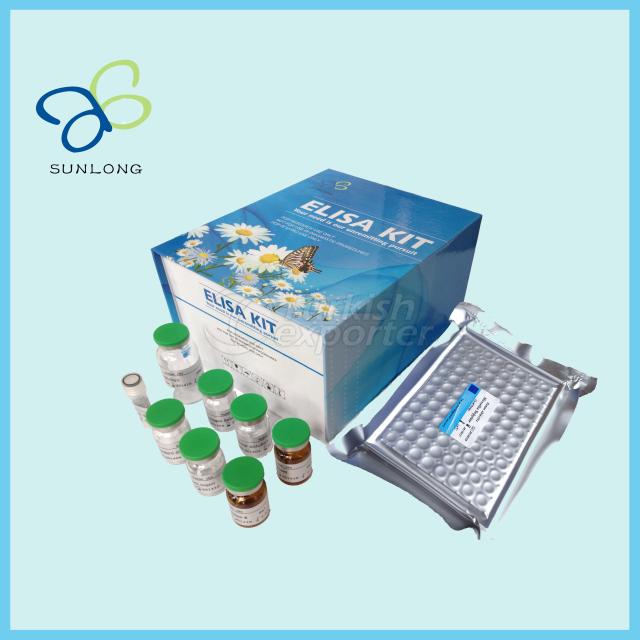Specifications:
| Application | ELISA-Based Assays |
| Storage Temperature | 2-8°C |
| Product Type | Elisa Kit |
| Product Grade | Molecular Biology |
The Canine Cytochrome-C (Cyt-C) ELISA Kit is a highly sensitive and specific assay designed for the quantitative measurement of Cytochrome-C (Cyt-C) in canine serum, plasma, culture media, and other biological fluids. This kit uses a Sandwich-ELISA method to deliver accurate and reliable results, making it ideal for research applications.
Purpose
- Quantification of Canine Cytochrome-C:
- Measure Cyt-C levels in a variety of biological samples for research into mitochondrial function, apoptosis, and oxidative stress.
- Applicable Samples:
- Serum, plasma, culture media, and other biological fluids from canine sources.
Principle
The assay employs a Sandwich-ELISA technique for high specificity and sensitivity. The steps include:
- Pre-coated Plate:
- The Microelisa strip plate is pre-coated with an antibody specific to canine Cyt-C.
- Sample and Standard Addition:
- Standards and samples are added to the wells, allowing Cyt-C in the sample to bind to the immobilized antibody.
- HRP-Conjugated Detection:
- A Horseradish Peroxidase (HRP)-conjugated antibody specific for Cyt-C is added, forming a sandwich complex with Cyt-C.
- Washing Step:
- Unbound components are washed away, reducing background noise.
- TMB Substrate Reaction:
- A TMB substrate is added, producing a blue color in the presence of HRP.
- Stop Reaction:
- A stop solution is added, turning the color from blue to yellow.
- Optical Density Measurement:
- The optical density (OD) is measured at 450 nm using a spectrophotometer. The OD value correlates directly with Cyt-C concentration.
Features
- High Sensitivity and Specificity:
- Detects low levels of Cyt-C with minimal cross-reactivity.
- Quantitative Results:
- Generates a standard curve for precise quantification of Cyt-C.
- Wide Sample Compatibility:
- Suitable for canine serum, plasma, and culture media.
- Ready-to-Use Components:
- Pre-coated plates and all necessary reagents included.
- Reproducibility:
- Ensures consistent results across experiments.
Kit Components
- Pre-coated Microelisa strip plate.
- Standards for Cyt-C quantification.
- HRP-conjugated antibody specific for Cyt-C.
- TMB substrate solution.
- Stop solution.
- Wash buffer.
- Sample diluent.
- Instruction manual.
Applications
- Mitochondrial Research:
- Study mitochondrial dysfunction and the role of Cyt-C in apoptosis.
- Oxidative Stress Studies:
- Quantify Cyt-C levels as a marker of oxidative stress in canine samples.
- Veterinary Research:
- Investigate Cyt-C as a biomarker for various diseases in canines.
- Cell Death Mechanisms:
- Explore the role of Cyt-C in apoptosis and cell death pathways.
Assay Protocol Summary
- Add standards or samples to the pre-coated wells.
- Incubate with HRP-conjugated Cyt-C antibody.
- Wash to remove unbound components.
- Add TMB substrate to develop color.
- Stop the reaction and measure OD at 450 nm.
- Calculate Cyt-C concentration using the standard curve.
Storage and Stability
- Store kit at 2–8°C to maintain reagent stability.
- Ensure all reagents are equilibrated to room temperature before use.
Advantages
- Ease of Use:
- User-friendly protocol with pre-coated plates and ready-to-use reagents.
- High Precision:
- Accurate quantification of Cyt-C levels in canine samples.
- Versatile Applications:
- Suitable for research in apoptosis, mitochondrial function, and oxidative stress.
The Canine Cytochrome-C (Cyt-C) ELISA Kit offers a reliable and efficient method for measuring Cyt-C in various canine biological samples. Its sensitivity, specificity, and straightforward protocol make it an invaluable tool for research in mitochondrial health, apoptosis, and oxidative stress.




 0
0
